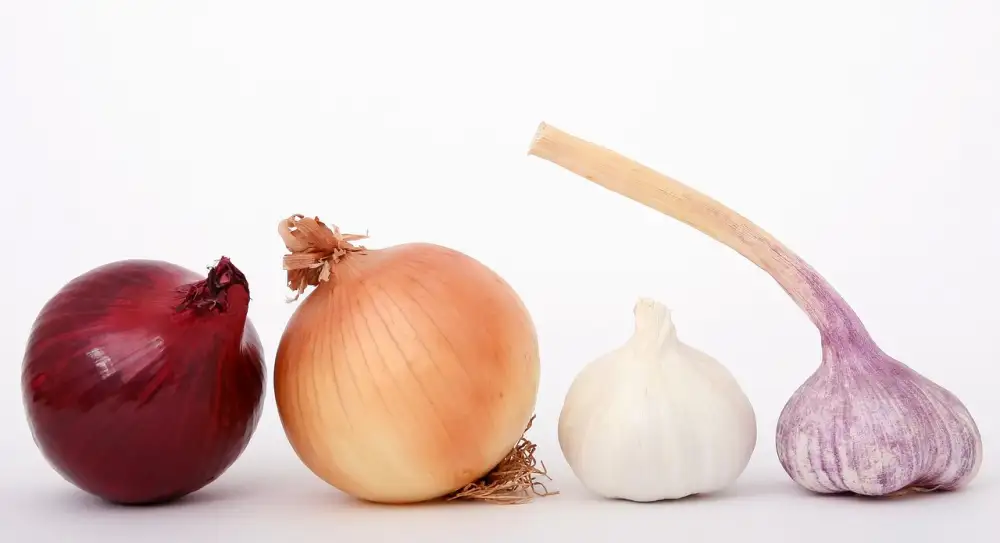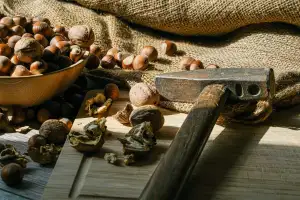Unlock the Secrets: How Long Does Garlic Last? Discover the Shelf Life of this Flavorful Ingredient

Garlic, with its distinctive aroma and robust flavor, is a staple ingredient in countless dishes around the world. But have you ever wondered how long this flavorful bulb can last? Understanding the shelf life of garlic is crucial for ensuring its freshness and maximizing its culinary potential. In this article, we will delve into the factors that affect garlic's longevity, explore the various stages of freshness, and provide tips on storing garlic properly to extend its shelf life. Unlocking the secrets of garlic's lifespan will not only help you avoid waste but also enhance your culinary creations with the full potential of this versatile ingredient.
Factors Affecting the Longevity of Garlic
Several factors can influence the longevity of garlic, determining how long it will stay fresh and flavorful. One crucial factor is the quality of the garlic itself. Fresh, high-quality garlic tends to have a longer shelf life compared to older or lower-quality bulbs.
Another important factor is storage conditions. Garlic should be stored in a cool, dry, and well-ventilated area to prevent moisture buildup and reduce the risk of mold or sprouting. Exposure to heat and humidity can accelerate spoilage.
The way garlic is handled also plays a role in its longevity. Rough handling or bruising can damage the cloves and lead to faster deterioration. It's essential to handle garlic with care and avoid dropping or crushing it.
Lastly, the variety of garlic can impact its shelf life. Softneck varieties tend to have a longer storage life compared to hardneck varieties. However, both types can still last for several months if stored properly.
By understanding these factors that affect the longevity of garlic, you can take necessary precautions to ensure your garlic stays fresh for as long as possible, maximizing its flavor and usefulness in your culinary endeavors.
Understanding Fresh Garlic: How Long Does it Last?
Fresh garlic, with its pungent aroma and distinct flavor, is a staple ingredient in many culinary creations. But how long does it actually last? The shelf life of fresh garlic can vary depending on several factors. On average, unpeeled garlic bulbs can last up to three to five months when stored properly. However, once the cloves are peeled, their lifespan decreases significantly to about a week or two. It's important to keep in mind that these are just general estimates and the actual longevity of your garlic may vary.
Storing Garlic Properly: Tips for Prolonging its Shelf Life
To ensure the longevity of your garlic, proper storage is key. Here are some tips to help you prolong its shelf life:
1. Keep it in a cool and dry place: Garlic should be stored in a cool and dry environment, away from direct sunlight. A pantry or a cupboard is an ideal spot.
2. Avoid storing in the refrigerator: While it may seem like a logical choice, refrigerating garlic can actually cause it to sprout and become rubbery. The cold temperature can also affect its flavor.
3. Use a breathable container: Opt for a container that allows air circulation, such as a mesh bag or a paper bag. This will help prevent moisture buildup and keep the garlic fresh for longer.
4. Separate cloves if necessary: If you have a large quantity of garlic, consider separating the cloves before storing them. This will prevent one spoiled clove from affecting the others.
5. Do not remove the papery skin: The papery skin acts as a protective layer for the garlic cloves. Only remove it right before using the garlic to maximize its shelf life.
By following these simple storage tips, you can ensure that your garlic stays fresh and flavorful for an extended period of time, allowing you to enjoy its culinary benefits whenever needed.
Signs of Spoiled Garlic: When to Discard
While garlic is known for its long shelf life, it is important to know when it has gone bad. Here are some signs that indicate spoiled garlic:
1. Discoloration: If you notice any green shoots or blue-green patches on the cloves, it means the garlic has started to sprout and should be discarded.
2. Softness or Mold: Garlic cloves should be firm and dry. If they become soft or develop mold, it is a clear indication that the garlic has spoiled and should not be consumed.
3. Unpleasant Odor: Fresh garlic has a strong, pungent aroma. However, if you detect a foul or rotten smell coming from the cloves, it means they have gone bad and should be thrown away.
4. Slimy Texture: When garlic starts to spoil, it may develop a slimy or sticky texture. This sliminess indicates bacterial growth and is a sign that the garlic is no longer safe to eat.
Remember, consuming spoiled garlic can lead to food poisoning and other health issues. It's always better to err on the side of caution and discard any garlic that shows these signs of spoilage.
Extending Garlic's Lifespan: Preserving Techniques
If you find yourself with an abundance of garlic and want to make it last longer, there are several preserving techniques you can employ. One popular method is to pickle garlic. This involves soaking peeled garlic cloves in a mixture of vinegar, salt, and spices. The acidity of the vinegar helps inhibit the growth of bacteria, extending the shelf life of the garlic.
Another option is to freeze garlic. Simply peel and chop the cloves, then place them in an airtight container or freezer bag. Freezing will preserve the flavor and aroma of the garlic for up to a year. Alternatively, you can also freeze whole unpeeled cloves by placing them in a single layer on a baking sheet and freezing them before transferring to a freezer-safe bag.
Drying garlic is another effective way to extend its lifespan. You can air dry whole bulbs by hanging them in a cool, well-ventilated area until they become dry and papery. Once dried, store them in a cool, dark place in an airtight container for up to six months. Alternatively, you can also dehydrate peeled cloves using a food dehydrator or an oven set at low temperature.
Lastly, you can infuse oil with garlic to create flavorful homemade garlic oil that can be used for cooking or as a dressing. To do this, simply heat olive oil over low heat and add crushed or minced garlic cloves. Let it simmer for about 10 minutes before straining out the solids and storing the infused oil in sterilized bottles.
By utilizing these preserving techniques, you can prolong the lifespan of your garlic and ensure that its delicious flavor remains intact for longer periods of time.
Frequently Asked Questions About Garlic's Shelf Life
1. How long does fresh garlic last?
Fresh garlic can last up to 3-5 months when stored properly.
2. Can I store garlic in the refrigerator?
Yes, you can store garlic in the refrigerator. However, it is best to keep it in a well-ventilated container to prevent moisture buildup.
3. Can I freeze garlic?
Yes, freezing garlic is a great way to extend its shelf life. Simply peel and chop the cloves, then place them in an airtight container or freezer bag.
4. Does garlic go bad if it sprouts?
While sprouted garlic is still safe to eat, it may have a milder flavor and slightly different texture. Remove the sprout before using for optimal taste.
5. Should I store garlic bulbs or cloves?
It is recommended to store whole bulbs of garlic rather than individual cloves as they tend to stay fresher for longer.
6. Can I store peeled garlic cloves?
Peeled garlic cloves have a shorter shelf life compared to whole bulbs. It is best to use them within a week or consider freezing them for later use.
7. What are the signs of spoiled garlic?
Spoiled garlic will have a strong odor, soft or moldy spots, and discolored cloves. If you notice any of these signs, it's time to discard the garlic.
Remember that proper storage techniques play a crucial role in extending the shelf life of your garlic and ensuring its freshness for as long as possible.
Understanding the shelf life of garlic is essential for every food enthusiast. By knowing how long garlic lasts and implementing proper storage techniques, you can ensure that this flavorful ingredient remains fresh and usable for an extended period.
Remember to store garlic in a cool, dry place away from direct sunlight and moisture. Avoid refrigerating whole bulbs, as it can lead to sprouting and loss of flavor. Instead, opt for storing individual cloves in an airtight container or a mesh bag.
Regularly check your garlic for any signs of spoilage such as mold, discoloration, or a strong odor. If you notice any of these indicators, it's time to discard the garlic.
To extend the lifespan of your garlic even further, consider preserving techniques like pickling or making garlic-infused oils. These methods not only prolong its usability but also add unique flavors to your culinary creations.
By understanding how long garlic lasts and implementing proper storage and preservation techniques, you can unlock the secrets to maximizing the usefulness of this versatile ingredient in your kitchen. So go ahead and enjoy the incredible flavors that fresh garlic brings to your dishes!
Published: 05. 12. 2023
Category: Food



